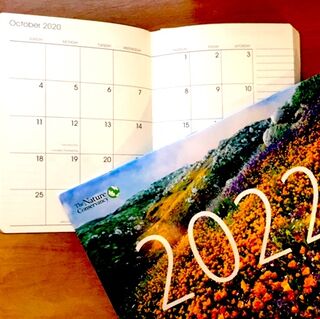Memory
Shoulda, Woulda, Coulda: Now What?
Letting go of what we didn’t accomplish during the lost days of COVID.
Posted December 2, 2021 Reviewed by Lybi Ma
Key points
- The only way to recover from lost time is to just let go and get on with life.
- There are no rules about what you should have accomplished.
- Letting go of the things you didn't do should free you to move on.
- COVID has taken a toll in lost time, lost opportunities, and lost connections.

Why didn't I do that?
As I looked in the mirror, I couldn’t help but wonder what my life would be like if I had only let my hair grow. Better yet, what my life would be like if I had only written that book, planted daffodils in the garden, cleaned my closets, learned to bake bread, play the piano, or a hundred other little things not done during the lost years of COVID?
Lost time is a real loss.
I’ve lost years before. Three years, to be exact. Losing time, especially big chunks of time like months or years leaves you feeling a bit dizzy and crazy. If you haven’t started experiencing it yet, I need to warn you that at some point in our COVID future, you will need to reckon with the loss.
The last time I lost a few years, I was scary sick with a kidney that no one understood was on the verge of collapse. It was a strange time, except I can’t tell you what happened, because I can’t piece together what happened when, or what our children did during that time, or what I should have been doing. It was just time being truly sick while struggling to get well.
A couple of months after my failed kidney was removed, I called my urologist and asked if I could come into his office to review my files. I needed to piece together a rough timeline of all the various surgeries, treatments, scans, and procedures I had endured. I was desperate for a narrative that would explain what had happened during that time because those three years were lost in my memory.
I was pretty sure I wasn’t having much fun and, I suspect, neither was my husband or our children.
During the last few months of those three years, I was in the hospital more than I was out. I vaguely remember our children complaining about the three dishes their father knew how to make because they all seemed to come from the same composition of sauteed onions and vegetables with the overriding variable being rice or pasta, or an extra can of tomatoes which turned it into soup.
Fortunately, enough time has passed for us to laugh together about those three dishes.
COVID is not gone yet. But, it's time to move on.
Like a bad kidney, when will COVID be truly gone and give us space to recover? And, once we recover, how will we piece together some narrative of what happened when and what we did to survive?
When I read through my staggeringly large medical file, I learned that those three years were not only difficult for me: they were also difficult for my doctors. For a long time, they didn’t know what was happening or why. They tried many things, always believing the next surgery, the next treatment, the next round of drugs and diets was going to change things.
For a long time, nothing did change, and then, it did. My damaged kidney was removed and I survived.
Surviving lost time.
That’s the bottom line. I survived and got well.
That’s how I have come to think about COVID. So far, we’ve survived. Maybe not with grace or flair, but we’ve gotten this far, and we are all wondering what happened during those lost months of shutdown. We are also wondering what we are going to do next to make life feel normal and connected again.
Here’s the hard truth about lost time: you don’t need to have done amazing things like writing a book, planting a garden, cleaning a closet, building a greenhouse, or learning how to make croissants from scratch, to feel okay about it all. None of that. You just need to know you have survived with as much grace as possible.
As for all the things you didn’t accomplish during those lost months and years. It’s best to forget about them.
You survived. That’s enough.
Now move on.




